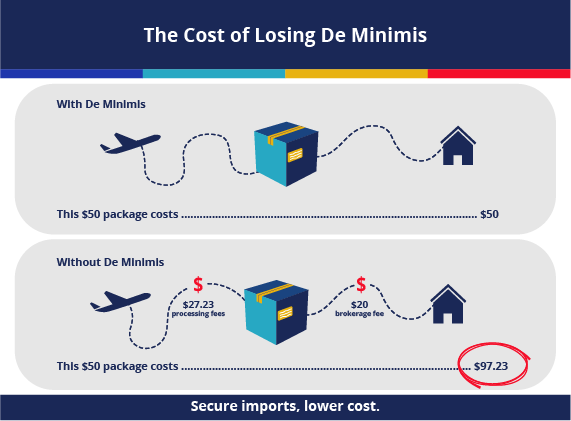Driving Growth: Enhanced Collaboration Between Bangladesh And Europe

Table of Contents
Boosting Trade and Investment
The foundation of a stronger relationship between Bangladesh and Europe lies in significantly boosting trade and investment. This requires a multifaceted approach focusing on reducing existing barriers and actively attracting European investment into the Bangladeshi market.
Reducing Trade Barriers
Streamlining trade between Bangladesh and the EU is crucial for driving growth. Currently, several obstacles hinder the free flow of goods and services. Addressing these barriers is paramount to realizing the full potential of this economic partnership.
- Negotiating favorable trade agreements: The negotiation and implementation of comprehensive and mutually beneficial trade agreements are essential. These agreements should aim to reduce tariffs, simplify customs procedures, and eliminate non-tariff barriers.
- Improving infrastructure (ports, logistics): Investing in modernizing port facilities, improving transportation networks, and enhancing logistics capabilities is crucial for efficient and cost-effective trade. This includes upgrading infrastructure to handle increased trade volumes and ensuring seamless connectivity across the supply chain.
- Streamlining regulatory processes: Simplifying and harmonizing regulatory processes, including customs procedures, product standards, and sanitary and phytosanitary (SPS) measures, will facilitate smoother trade flows. This will reduce bureaucratic hurdles and expedite the movement of goods.
Attracting European Investment in Bangladesh
Bangladesh offers significant advantages for European investors, including a young and dynamic workforce, a strategic geographical location, and increasingly attractive government incentives. Promoting these advantages is key to attracting significant foreign direct investment (FDI).
- Promoting foreign direct investment (FDI) in key sectors: Targeted campaigns should highlight investment opportunities in key sectors such as ready-made garments (RMG), pharmaceuticals, information technology (IT), and renewable energy. This will attract investors seeking high-growth potential.
- Improving the ease of doing business: Simplifying business registration procedures, reducing bureaucratic red tape, and ensuring a transparent and predictable regulatory environment will significantly enhance the attractiveness of Bangladesh for foreign investors.
- Guaranteeing investor protection: Strong legal frameworks and robust mechanisms for protecting intellectual property rights and ensuring investor security are essential to build investor confidence and attract sustainable long-term investment.
Strengthening Supply Chains
Leveraging Bangladesh's manufacturing prowess and diversifying its export base are key to strengthening supply chains and fostering sustainable growth.
Leveraging Bangladesh's Manufacturing Capacity
Bangladesh's RMG sector is already a significant player in the global market. However, there's immense potential for further growth through collaboration with European companies.
- Developing sustainable and ethical supply chains: European companies can partner with Bangladeshi manufacturers to implement sustainable and ethical sourcing practices, improving labor conditions, environmental protection, and promoting fair trade principles.
- Improving worker safety and labor standards: Investing in improving worker safety and upholding international labor standards is not just ethically crucial but also enhances the reputation and competitiveness of Bangladeshi manufacturers in the global market.
- Investing in technological upgrades for Bangladeshi factories: Transferring technology and providing training to upgrade Bangladeshi factories will enhance productivity, efficiency, and competitiveness, leading to greater export potential.
Diversifying Exports from Bangladesh
Relying solely on the RMG sector creates vulnerability. Diversifying exports is critical for long-term economic stability.
- Supporting diversification initiatives: Government and private sector partnerships can support initiatives that promote diversification into sectors such as jute products, pharmaceuticals, IT services, and agricultural products.
- Investing in skills development and training: Investing in education and vocational training programs to develop the skills needed for emerging sectors will build a more diversified and resilient workforce.
- Developing new export markets within Europe: Proactive strategies to explore and penetrate new export markets within Europe, beyond existing ones, will expand Bangladesh's export base and reduce reliance on a single sector.
Promoting Technological Collaboration
Technological collaboration is vital for driving innovation and sustainable development in Bangladesh. This requires a concerted effort to transfer knowledge and build capacity.
Knowledge Transfer and Capacity Building
Europe's advanced technological capabilities can significantly benefit Bangladesh through knowledge transfer and capacity building initiatives.
- Joint research projects and innovation hubs: Establishing joint research projects and innovation hubs will foster collaboration between Bangladeshi and European researchers and scientists, leading to technological advancements.
- Training programs and scholarships: Offering training programs, scholarships, and exchange opportunities for Bangladeshi professionals in European institutions will enhance their skills and expertise.
- Promoting digitalization and technological advancements: Collaboration on promoting digitalization and adopting advanced technologies across various sectors will enhance efficiency and competitiveness.
Sustainable Development Goals (SDGs)
Addressing climate change and promoting sustainable development are crucial for long-term growth. Collaboration between Bangladesh and Europe is essential in this area.
- Green technology transfer and investment: Transferring green technologies and attracting investment in renewable energy and sustainable manufacturing practices will contribute to environmental protection and economic growth.
- Sustainable manufacturing practices: Implementing sustainable manufacturing practices in Bangladeshi industries will minimize environmental impact and promote responsible production.
- Renewable energy development: Investing in renewable energy sources, such as solar and wind power, will reduce reliance on fossil fuels and contribute to climate change mitigation.
Conclusion
Enhanced collaboration between Bangladesh and Europe presents a significant opportunity to drive growth for both regions. By focusing on boosting trade and investment, strengthening supply chains, and promoting technological collaboration, both sides can reap substantial economic benefits. To unlock this potential, concerted efforts are needed to reduce trade barriers, attract European investment, and foster a mutually beneficial partnership built on sustainability and shared prosperity. Let's work together to strengthen this vital relationship and continue driving growth through enhanced collaboration between Bangladesh and Europe.

Featured Posts
-
 Analysis G 7s Proposed Changes To De Minimis Tariffs For Chinese Products
May 25, 2025
Analysis G 7s Proposed Changes To De Minimis Tariffs For Chinese Products
May 25, 2025 -
 Hells Angels An Examination Of Their Culture And Influence
May 25, 2025
Hells Angels An Examination Of Their Culture And Influence
May 25, 2025 -
 Nvidias Rtx 5060 Debacle Exposes Review Process Flaws
May 25, 2025
Nvidias Rtx 5060 Debacle Exposes Review Process Flaws
May 25, 2025 -
 Carolina Country Music Fest 2025 Tickets Gone
May 25, 2025
Carolina Country Music Fest 2025 Tickets Gone
May 25, 2025 -
 Raspredelenie Vozrastov Personazhey V Filme O Bednom Gusare Zamolvite Slovo
May 25, 2025
Raspredelenie Vozrastov Personazhey V Filme O Bednom Gusare Zamolvite Slovo
May 25, 2025
